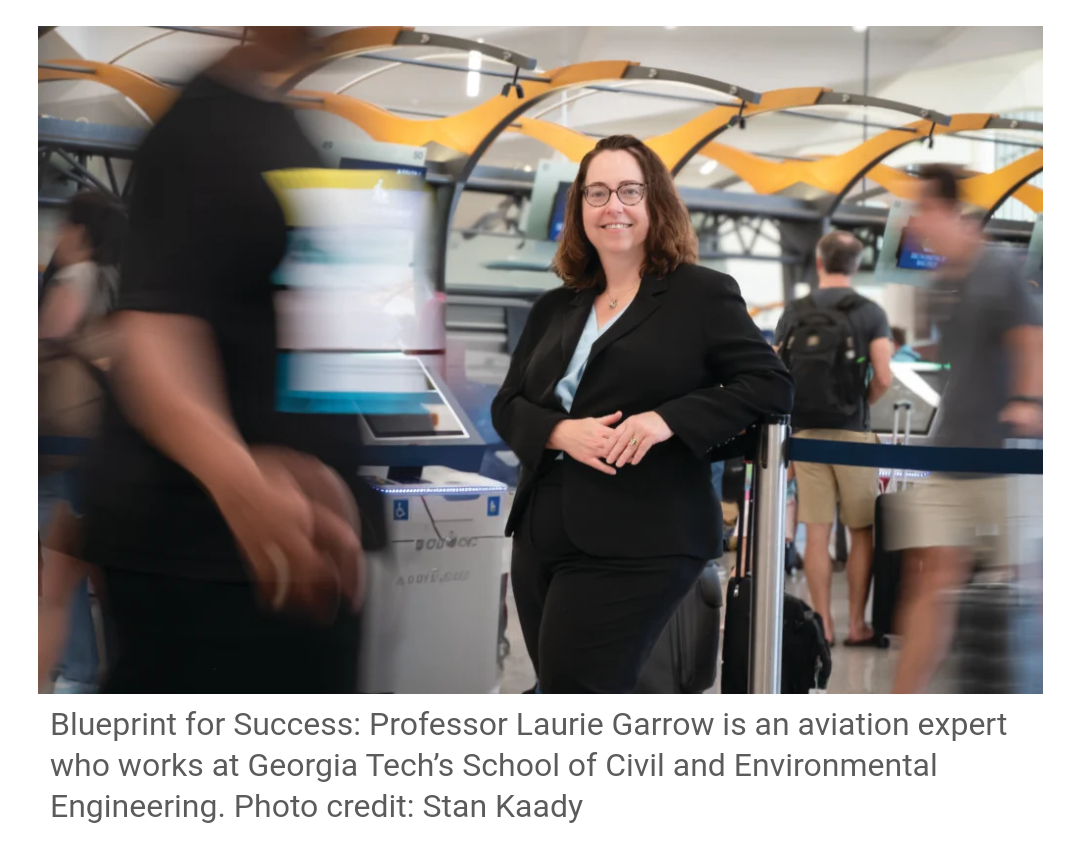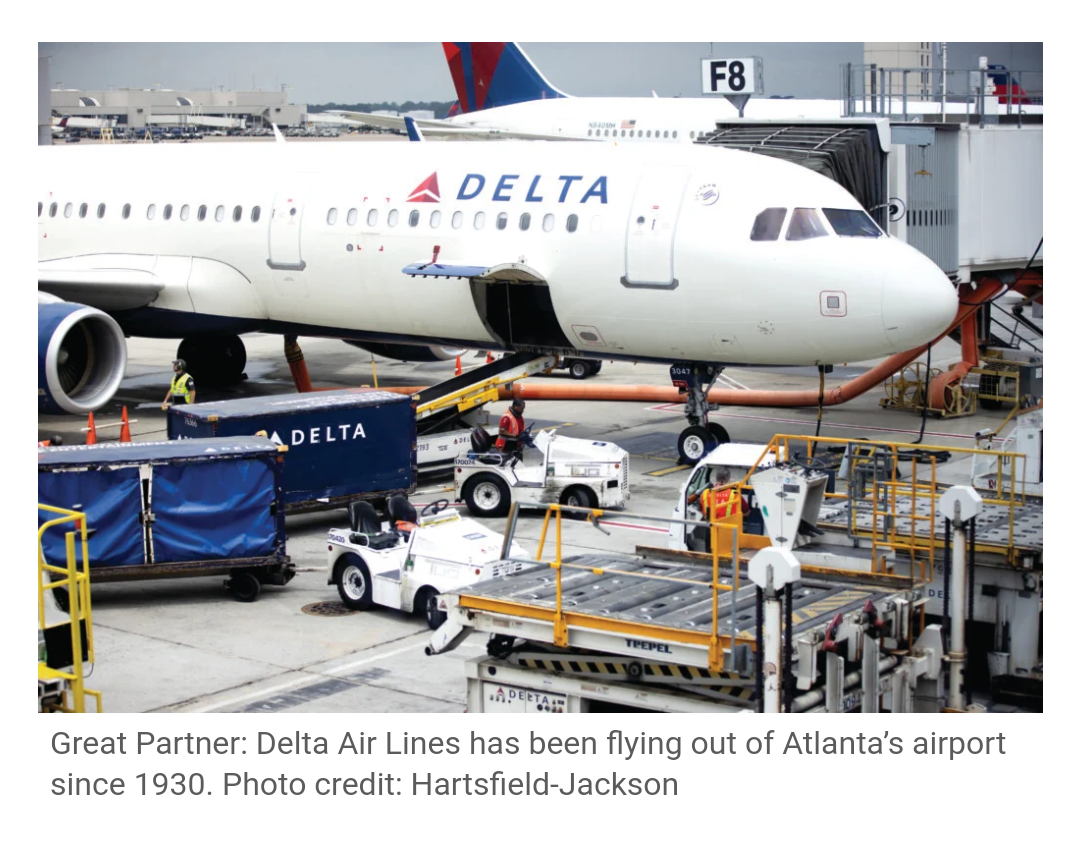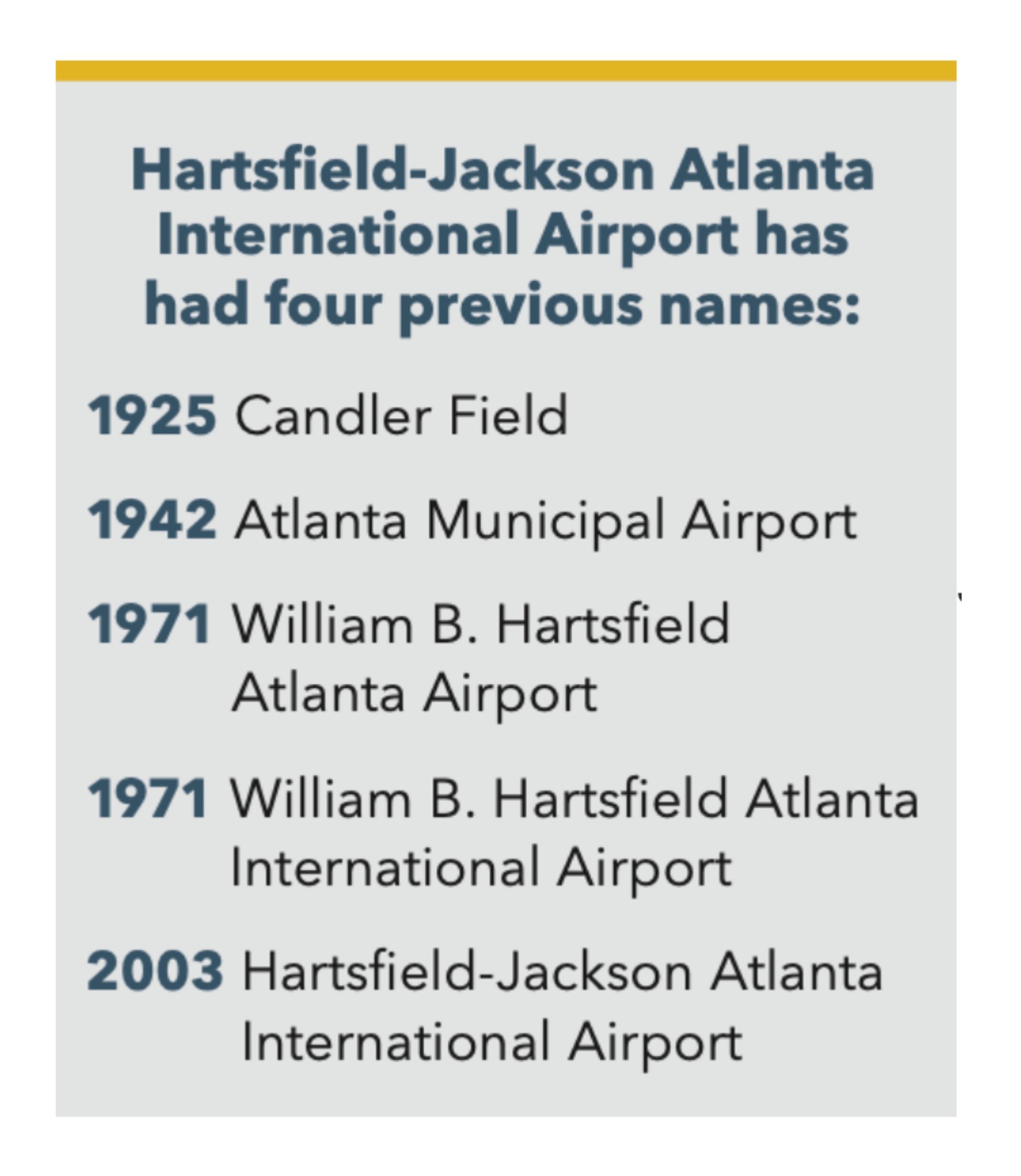


Thursday 16th of October 2025 06:27 PM


The Peach State's Crown Jewel is Determined to Stay Soaring Atop The Competition
Hartsfield-Jackson Atlanta International Airport (ATL) stands as a beacon of air travel excellence, serving as a vital gateway for approximately 286,000 travelers daily. Nestled just south of Atlanta's vibrant city center, this aviation marvel consistently connects passengers to destinations worldwide—from Amsterdam to Zurich, and beyond.
A Global Leader in Aviation
In 2023, ATL once again clinched the title of the busiest airport globally, a remarkable achievement it has maintained for 24 of the last 25 years. With around 2,100 flights arriving and departing each day, the airport handled nearly 105 million passengers. This impressive figure is a testament to the relentless efforts of Atlanta’s leaders, who have invested over $11.6 billion in infrastructure enhancements to ensure the airport can accommodate an ever-increasing volume of travelers and larger aircraft.

Zack Deming, managing director at the Diversified Search Group, highlights the importance of continual investment: “You invest and keep up or you fall behind.” This mindset is evident in the ongoing discussions about next-generation airliners and alternative fuel sources, including hydrogen, aiming to propel Atlanta International into a sustainable future.
Historical Significance and Strategic Location
The journey to becoming a premier aviation hub began in the early 20th century when city officials intentionally positioned Atlanta as an aviation leader. Professor Laurie Garrow of Georgia Tech emphasizes this foresight, stating that the city’s commitment to fostering a robust aviation sector dates back to 1919, with the donation of land by Coca-Cola’s Asa Candler.

Atlanta Airport’s prime location, just 10 miles south of downtown, allows it ample room for expansion without the constraints of surrounding water bodies or dense urban development. Unlike many major U.S. cities with multiple airports, ATL benefits from being the sole airport for the metropolitan area, consolidating passenger traffic and enhancing operational efficiency.
The Delta Connection
A significant contributor to Hartsfield-Jackson's success is Delta Air Lines, which began operations in Atlanta in 1930. As the airport's primary carrier, Delta offers over 830 peak-day departures to more than 200 global destinations, reinforcing ATL’s status as a leading international gateway.

The economic impact of the Atlanta Airport is profound. It serves as the state’s largest employer, generating a staggering $34.8 billion annually for Metro Atlanta and $66 billion for Georgia. The airport houses 263 concession outlets, including diverse dining options and retail shops, making it a bustling hub beyond just travel.
Transportation and Future Development
Efforts to improve ground transportation around Atlanta Airport are underway, with projects focusing on enhancing connectivity to local attractions and businesses. The MARTA rail system serves an average of 11,000 customers daily, linking the airport to the broader Atlanta region. Plans are also in motion for innovative transportation systems, including a Personal Rapid Transit system and autonomous shuttles, aimed at improving accessibility and mobility.
Embracing Change and Sustainability
Hartsfield-Jackson is not resting on its laurels; it’s poised for future challenges, especially as competition from rapidly expanding airports in the Middle East and Asia intensifies. The airport is undergoing significant expansions, including a $1.4 billion project to enhance Concourse D, which will increase seating capacity and accommodate larger aircraft.


In addition to physical improvements, ATL is exploring sustainable aviation fuels, particularly hydrogen, as a viable alternative for future flights. The potential shift to hydrogen fuel could revolutionize air travel, with studies assessing its feasibility set to conclude by 2026.
Navigating Leadership Changes
As Hartsfield-Jackson Atlanta International Airport plans for a bright future, recent leadership changes have created some turbulence. However, experts believe the airport’s robust infrastructure and strategic positioning will ensure it continues to thrive, regardless of internal changes.

With its dedication to innovation, economic impact, and unmatched connectivity, Hartsfield-Jackson Atlanta International Airport remains an indispensable cornerstone of global travel and commerce. As Atlanta continues to invest in its crown jewel, the future looks promising for this vital transportation hub.
Tags: Atlanta Airport, Atlanta Hartsfield Jackson,
Atlanta International Airport still soaring, Atlanta International America's number one airport

More from DixieDigest

Engineering Georgia
Georgia

Arthur Brice
Georgia

Sara Haynes
Georgia